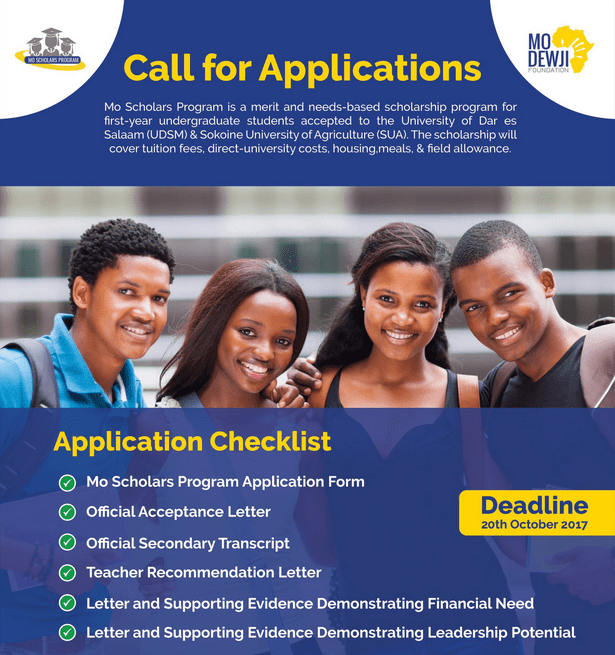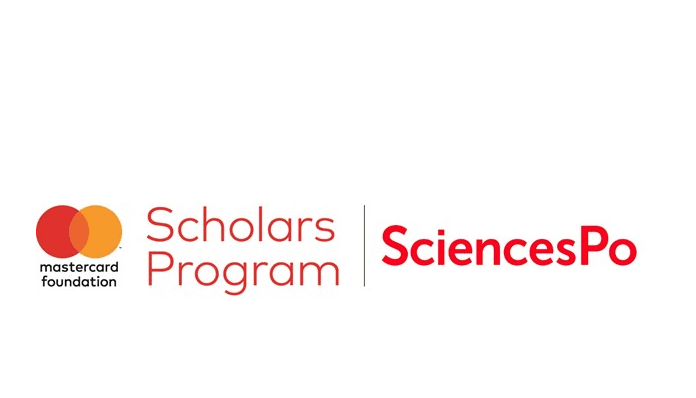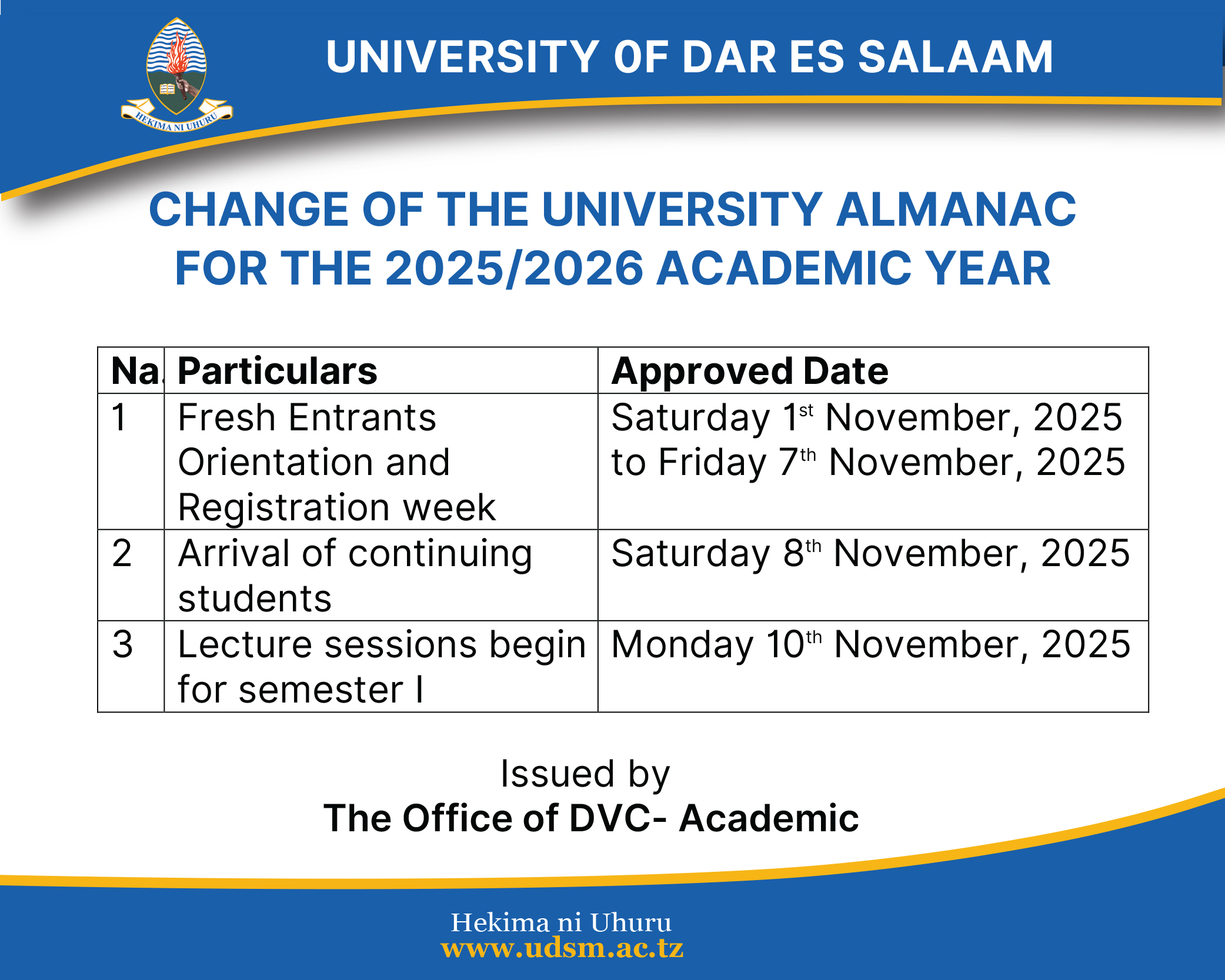Scholarships to Study a Master’s in Tanzania:
What You Need to Know
In a world where education opens doors to opportunity, the cost of pursuing a Master’s degree can still be a heavy burden. Yet, hope is not lost. Whether you’re a Tanzanian dreaming of further studies or an international student drawn to Tanzania’s rich culture and growing academic landscape, scholarships could be the key to unlocking your future.
Let’s talk about what’s available, where to start, and how you can position yourself for a better shot at securing funding.
Why Study in Tanzania?
Before diving into scholarships, it’s worth understanding why someone might choose Tanzania for their Master’s degree. Tanzania is more than Mount Kilimanjaro and Serengeti safaris. It’s a country with diverse universities, unique research opportunities, and an education system that’s growing in both quality and global recognition.
-
Affordable living costs compared to Western countries.
-
Programs in agriculture, public health, education, business, and more that are tailored to the region’s development needs.
-
Universities like University of Dar es Salaam (UDSM), Nelson Mandela African Institution of Science and Technology (NM-AIST), and Mzumbe University are increasingly offering competitive Master’s programs.
So what stands between you and a Master’s degree in Tanzania? Often, it’s funding. That’s where scholarships come in.
Types of Scholarships Available
Scholarships to study a Master’s in Tanzania fall into a few broad categories:
1. Government Scholarships (Local and Foreign)
Tanzanian and international governments offer scholarships either directly or through bilateral agreements.
Tanzanian Government Scholarships
-
Typically available through the Ministry of Education, Science and Technology (MoEST).
-
Often prioritize fields such as education, agriculture, engineering, health sciences, and ICT.
-
May cover tuition only or include stipends and living allowances.
Bilateral and Multilateral Programs
Some scholarships come from Tanzania’s partnerships with other countries.
-
Commonwealth Scholarships – Available for Tanzanians to study in other Commonwealth countries, but sometimes also fund studies within Tanzania.
-
DAAD (Germany) – Offers scholarships for students studying at selected institutions in East Africa, including Tanzania.
-
African Union Scholarships – For Pan-African Master’s programs, often hosted in African countries including Tanzania.
2. University-Specific Scholarships
Some universities in Tanzania offer scholarships for postgraduate students—either merit-based or need-based.
University of Dar es Salaam (UDSM)
-
Offers limited scholarships to top-performing Master’s students.
-
May also administer donor-funded programs such as Carnegie African Diaspora Fellowships and DAAD in-country scholarships.
Nelson Mandela African Institution of Science and Technology (NM-AIST)
-
Offers scholarships funded by organizations like SIDA (Sweden), DAAD, and The World Bank.
-
Prioritizes science and tech-based Master’s and PhD programs.
Mzumbe University
-
Occasionally offers scholarships or partial funding through partnerships.
-
Focuses on business, law, and public administration programs.
3. Donor & NGO-Funded Scholarships
Numerous NGOs and development organizations support higher education in Tanzania.
MasterCard Foundation
-
Funds young Africans through partner institutions.
-
Though more focused on undergraduate studies, it sometimes supports postgraduates in targeted fields (e.g., public health, agriculture).
AHEAD (African Higher Education Advancement and Development)
-
Provides partial or full scholarships to Tanzanian students, especially women and those from marginalized regions.
RUFORUM
-
Supports graduate studies in agriculture-related fields at African universities, including Tanzanian institutions.
Where to Find Scholarships
Finding scholarships can feel like hunting for treasure. But it helps to know where to dig:
-
University websites – Check the admissions or financial aid pages regularly.
-
MoEST (Tanzania Ministry of Education) – Posts updates on government or foreign-funded scholarships.
-
Embassies – Some scholarships are announced through embassies (like the Indian High Commission or Chinese Embassy).
-
DAAD Scholarship Portal – For German-funded opportunities in Africa.
-
Scholarship aggregators like:
How to Apply — And Actually Stand a Chance
It’s one thing to find scholarships. It’s another to win them. Here are some honest, practical tips:
1. Start Early
Scholarship deadlines are usually months before the academic year begins. If you wait until you’re admitted to a university, it might be too late.
2. Craft a Strong Personal Statement
Tell your story. Why you? Why this course? Why Tanzania? Be authentic, but also highlight your academic strengths, goals, and community impact.
3. Get Your Documents in Order
Most scholarships require:
-
Academic transcripts
-
Letters of recommendation
-
Admission letter (sometimes optional at first stage)
-
ID/passport
-
Research proposal (for research-based programs)
4. Apply to Multiple Scholarships
Don’t put all your hopes in one application. Scholarships are competitive — spread your chances.
5. Show Commitment to Africa’s Development
Many African scholarships want candidates who will give back. If your goals are aligned with improving health, education, environment, or economy in Africa, say so — and mean it.
Final Words: Keep Going, It’s Possible
Applying for scholarships can be exhausting. The forms, the essays, the rejections — it’s enough to make anyone give up. But here’s the truth: many students have been where you are, and they made it. So can you.
Tanzania, with its growing academic reputation and cultural richness, is not just a beautiful place to visit — it can be the launchpad for your future. And with the right scholarship, it doesn’t have to cost the world.
Quick Resources Recap:
-
Tanzania Ministry of Education: moe.go.tz
-
University of Dar es Salaam: udsm.ac.tz
-
NM-AIST: nm-aist.ac.tz
-
DAAD Scholarships: daad.de/en
-
RUFORUM: ruforum.org
- Also you mal ready;
- Fully-Funded FAO Internship Programmer for Africa
- MARKET ACCESS INTERNSHIP UNITED REPUBLIC OF TANZANIA


